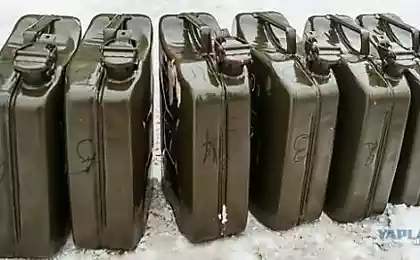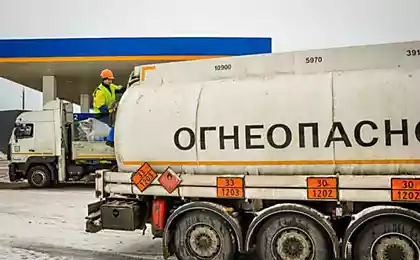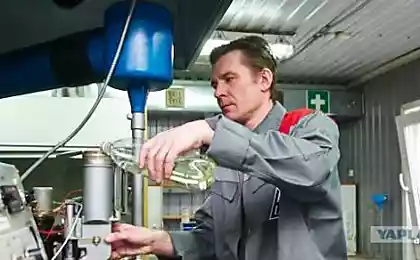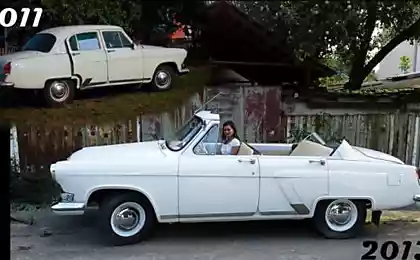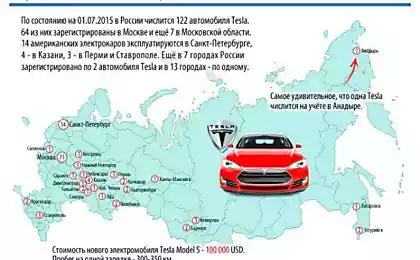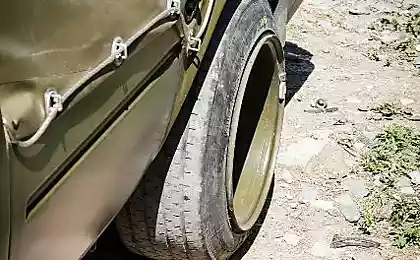656
Why dilute the diesel fuel and the better?
Everything returns to normal. Bearded anecdote in which, in response to a request to fill the car diesel fuel filling station operator asks "Do you crumble it into a tank or filter smear" again begins to haunt the minds of owners of diesel vehicles.
However, owners are not laughing. What fuel was poured into the tank, it tells the engine itself. Local, which can be spread on the filter, the diesel can be got, but how far it will leave the machine running on this fuel?
4 photos and text
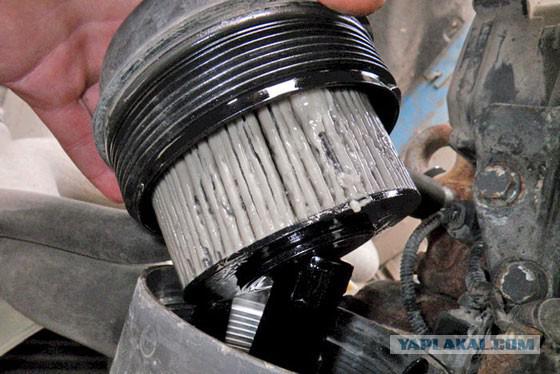
Mechanics obstruction
The cause of all evils is the paraffin contained in diesel fuel. By lowering the temperature of the wax tend to change the state of aggregation. Simply put, it crystallizes. Unlike water, also changes the aggregate state at zero degrees, the wax crystals appear in the fuel at five degrees below zero. Visually, it is perceived as clouding of fuel.
Paraffin is not dangerous, as the size of the crystals smaller than the pores in the filter paper fuel filter. The problem is the ability of crystals in the temperature is lowered further to create conglomerates - large flakes, which, because of their size at first stuck in the pores of the paper, and then form on the surface of the filter element whitish film of gel. As a result, the filter turns into a cork, irresistible for fuel. It is no longer flow to the injectors, diesel stalls, the machine stops.
The temperature at which the fuel stops pumped through the filter is an essential characteristic of DT. According to her, the current standards we have, there are four of DT: Class C, filterability limit temperature not higher than -5 °; Class D - no higher than -10 °; Class E - no higher than -15 °; Class F - no higher than -20 °. Apart from them a few years ago, it was mastered the production of "Arctic", in which the temperature limit of filterability even lower than that of diesel fuel grade F.
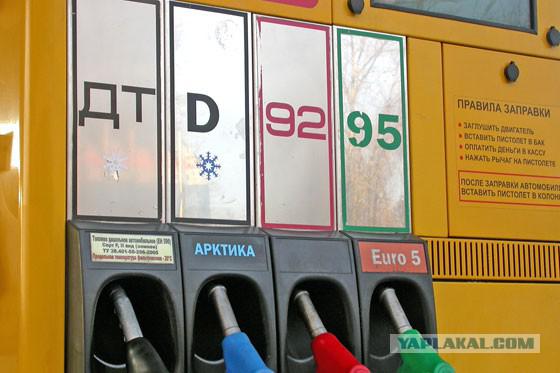
All manipulations of the bottle additives and fuel nozzle should be carried out in the waltz, did not have time to harden those "five drops" additives that have been added before filling the tank
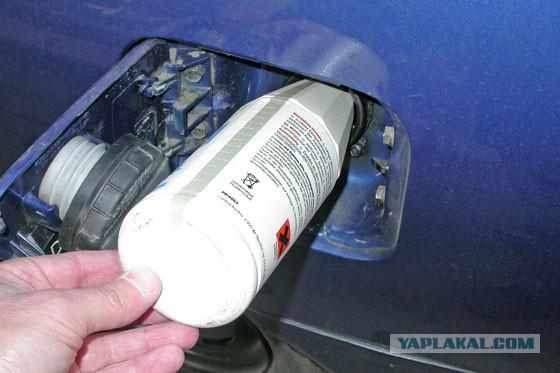
Case Case
Peaks paraffin paralysis usually comes in the first place, at the beginning of this winter, and secondly, at times very severe frosts, when, as the folk wisdom, a good boss dog on the street did not expel. Why frost below -5 ° each year tanker caught off guard, remains a mystery, but it has repeatedly proven fact. As a result, the gas station run by the suffering so-called "summer" DT (Class C) of the stocks that the beginning of winter left in the tanks, or at best, with its mixture of "winter" diesel fuel (Class F). The situation is similar in the tanks of vehicles.
Other bursts occur in a sharp change in the weather, when, for example, in the evening it was still more or less, and in the morning the thermometer fell to the area of 17 degrees or less, and the car filled with grade F. imposed on the overall situation and cases refueling diesel fuel, low-temperature quality which do not correspond to the winter conditions. Where owners acquire such DT, dismantle will not. Our theme is moved to the title of the article, for many years of operating experience of diesel cars shows that DT dilution of gasoline and kerosene or addition to diesel fuel additives, which are called - antigelnye or depressants actually lowers the temperature limit of filterability.
Why frost below -5 ° in each year tanker caught off guard, remains a mystery, but as a result of the gas station run by the suffering so-called "summer" DT (Class C) of the stocks that the beginning of winter left in the tanks
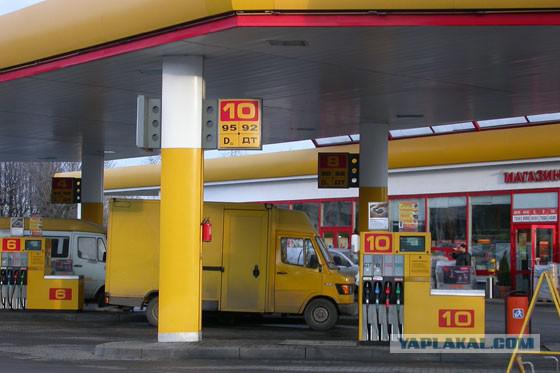
Ever since the Union
A method of lowering the threshold filterability of diesel fuel by adding gasoline or kerosene is known since the days of the Soviet Union, is widely practiced, especially in the Far North, where extreme frost in tanks poured to 70% kerosene. It is clear that these were diesel trucks that bear little resemblance to modern diesel passenger cars, but for them DT dilution of gasoline and kerosene were forced, but not innocuous measure.
Two drawbacks. Firstly, for the friction parts of fuel equipment of diesel fuel is the lubricant. Dilution lubricant kerosene or gasoline impairs the lubricating properties and the viscosity of the mixture, which increases the risk of premature wear of precision elements, and the pitting of the metal parts of the drive units of the fuel equipment.
Another minus is the influence of additives on cetane number of diesel fuel. This parameter describes the ability to self-ignition of diesel fuel compression because of what is also important for diesel engines. Adding kerosene or gasoline reduces the cetane number. As a result, the ignition delay increases, which leads to a more stringent combustion and increased loads on parts of the crank mechanism. This can not but affect their longevity. In addition, the possible deterioration of the starting properties without unimportant in cold weather, and increased exhaust smoke.
Of two evils safer kerosene. He lubricity deteriorates not so much, and cetane number reduces less than gasoline. But still try to find kerosene and gasoline sea tap on each station. Often even to move to another column is not necessary - just swap guns. Because of better grades of gasoline with an octane rating of the smallest, and therefore is regrettable that discontinued production of gasoline H-80.
Against depression
Antigelnye additives appeared on the retail market after the diesel foreign cars. Unlike gasoline and kerosene to be added and the more liters of cold, the greater the dose of the additive is a fraction of a percentage of the amount of fuel. For this reason antigel should not affect the viscosity, which saves a considerable fraction of diesel fuel lubricity. Possible impact on the value of the cetane number is offset by the fact that most antigelnyh additives are complex drugs that in addition to reducing the pour point of diesel fuel promises to protect the fuel system from corrosion and wear, increasing the cetane number, reducing smoke and other pleasures. Conduct independent research - they promised in the annotations are not always confirmed, but generally do not refute.
The shortcomings of the difficulty of the application. The effect is achieved after the physical and chemical processes to the base fuel, and they can normally occur only at temperatures above + 5 °. The best option - to add additives in the fuel containers and mixing in a warm room, but to engage in such alchemy do not allow the technician to most living conditions. Just as at the gas station to get results is not easy. Fuel from the tanks is supplied with a temperature above said, but additive necessary to carry on the gas station "in his bosom" and all manipulations with the bottle and the fuel nozzle performed in waltz tempo that did not have time to harden those "five drops" additives which were before filling added to the tank .
The second drawback - the cost. Additive costs money, and the addition of petrol, taking into account that it is cheaper than diesel fuel, on the contrary, reduces the cost of maintenance of a vehicle fuel.
If formally to ask experts SRT "Which is better - gasoline, kerosene or antigel?", It turns out that everything is bad. The basis for such a response - the use of any additives to diesel fuel provided by manufacturers. However, when the same question is asked on a private level, it turns out that experts in their personal vehicles do not neglect to dilute DT improvised means. In our opinion, preferable Antigel, but still better than any chemical forced heating fuel, because at temperatures above 5 degrees Celsius paraffin does not crystallize.
At the end I will bring an old video that you can see what the paraffin in diesel fuel.
source
Source:
However, owners are not laughing. What fuel was poured into the tank, it tells the engine itself. Local, which can be spread on the filter, the diesel can be got, but how far it will leave the machine running on this fuel?
4 photos and text

Mechanics obstruction
The cause of all evils is the paraffin contained in diesel fuel. By lowering the temperature of the wax tend to change the state of aggregation. Simply put, it crystallizes. Unlike water, also changes the aggregate state at zero degrees, the wax crystals appear in the fuel at five degrees below zero. Visually, it is perceived as clouding of fuel.
Paraffin is not dangerous, as the size of the crystals smaller than the pores in the filter paper fuel filter. The problem is the ability of crystals in the temperature is lowered further to create conglomerates - large flakes, which, because of their size at first stuck in the pores of the paper, and then form on the surface of the filter element whitish film of gel. As a result, the filter turns into a cork, irresistible for fuel. It is no longer flow to the injectors, diesel stalls, the machine stops.
The temperature at which the fuel stops pumped through the filter is an essential characteristic of DT. According to her, the current standards we have, there are four of DT: Class C, filterability limit temperature not higher than -5 °; Class D - no higher than -10 °; Class E - no higher than -15 °; Class F - no higher than -20 °. Apart from them a few years ago, it was mastered the production of "Arctic", in which the temperature limit of filterability even lower than that of diesel fuel grade F.

All manipulations of the bottle additives and fuel nozzle should be carried out in the waltz, did not have time to harden those "five drops" additives that have been added before filling the tank

Case Case
Peaks paraffin paralysis usually comes in the first place, at the beginning of this winter, and secondly, at times very severe frosts, when, as the folk wisdom, a good boss dog on the street did not expel. Why frost below -5 ° each year tanker caught off guard, remains a mystery, but it has repeatedly proven fact. As a result, the gas station run by the suffering so-called "summer" DT (Class C) of the stocks that the beginning of winter left in the tanks, or at best, with its mixture of "winter" diesel fuel (Class F). The situation is similar in the tanks of vehicles.
Other bursts occur in a sharp change in the weather, when, for example, in the evening it was still more or less, and in the morning the thermometer fell to the area of 17 degrees or less, and the car filled with grade F. imposed on the overall situation and cases refueling diesel fuel, low-temperature quality which do not correspond to the winter conditions. Where owners acquire such DT, dismantle will not. Our theme is moved to the title of the article, for many years of operating experience of diesel cars shows that DT dilution of gasoline and kerosene or addition to diesel fuel additives, which are called - antigelnye or depressants actually lowers the temperature limit of filterability.
Why frost below -5 ° in each year tanker caught off guard, remains a mystery, but as a result of the gas station run by the suffering so-called "summer" DT (Class C) of the stocks that the beginning of winter left in the tanks

Ever since the Union
A method of lowering the threshold filterability of diesel fuel by adding gasoline or kerosene is known since the days of the Soviet Union, is widely practiced, especially in the Far North, where extreme frost in tanks poured to 70% kerosene. It is clear that these were diesel trucks that bear little resemblance to modern diesel passenger cars, but for them DT dilution of gasoline and kerosene were forced, but not innocuous measure.
Two drawbacks. Firstly, for the friction parts of fuel equipment of diesel fuel is the lubricant. Dilution lubricant kerosene or gasoline impairs the lubricating properties and the viscosity of the mixture, which increases the risk of premature wear of precision elements, and the pitting of the metal parts of the drive units of the fuel equipment.
Another minus is the influence of additives on cetane number of diesel fuel. This parameter describes the ability to self-ignition of diesel fuel compression because of what is also important for diesel engines. Adding kerosene or gasoline reduces the cetane number. As a result, the ignition delay increases, which leads to a more stringent combustion and increased loads on parts of the crank mechanism. This can not but affect their longevity. In addition, the possible deterioration of the starting properties without unimportant in cold weather, and increased exhaust smoke.
Of two evils safer kerosene. He lubricity deteriorates not so much, and cetane number reduces less than gasoline. But still try to find kerosene and gasoline sea tap on each station. Often even to move to another column is not necessary - just swap guns. Because of better grades of gasoline with an octane rating of the smallest, and therefore is regrettable that discontinued production of gasoline H-80.
Against depression
Antigelnye additives appeared on the retail market after the diesel foreign cars. Unlike gasoline and kerosene to be added and the more liters of cold, the greater the dose of the additive is a fraction of a percentage of the amount of fuel. For this reason antigel should not affect the viscosity, which saves a considerable fraction of diesel fuel lubricity. Possible impact on the value of the cetane number is offset by the fact that most antigelnyh additives are complex drugs that in addition to reducing the pour point of diesel fuel promises to protect the fuel system from corrosion and wear, increasing the cetane number, reducing smoke and other pleasures. Conduct independent research - they promised in the annotations are not always confirmed, but generally do not refute.
The shortcomings of the difficulty of the application. The effect is achieved after the physical and chemical processes to the base fuel, and they can normally occur only at temperatures above + 5 °. The best option - to add additives in the fuel containers and mixing in a warm room, but to engage in such alchemy do not allow the technician to most living conditions. Just as at the gas station to get results is not easy. Fuel from the tanks is supplied with a temperature above said, but additive necessary to carry on the gas station "in his bosom" and all manipulations with the bottle and the fuel nozzle performed in waltz tempo that did not have time to harden those "five drops" additives which were before filling added to the tank .
The second drawback - the cost. Additive costs money, and the addition of petrol, taking into account that it is cheaper than diesel fuel, on the contrary, reduces the cost of maintenance of a vehicle fuel.
If formally to ask experts SRT "Which is better - gasoline, kerosene or antigel?", It turns out that everything is bad. The basis for such a response - the use of any additives to diesel fuel provided by manufacturers. However, when the same question is asked on a private level, it turns out that experts in their personal vehicles do not neglect to dilute DT improvised means. In our opinion, preferable Antigel, but still better than any chemical forced heating fuel, because at temperatures above 5 degrees Celsius paraffin does not crystallize.
At the end I will bring an old video that you can see what the paraffin in diesel fuel.
source
Source:
